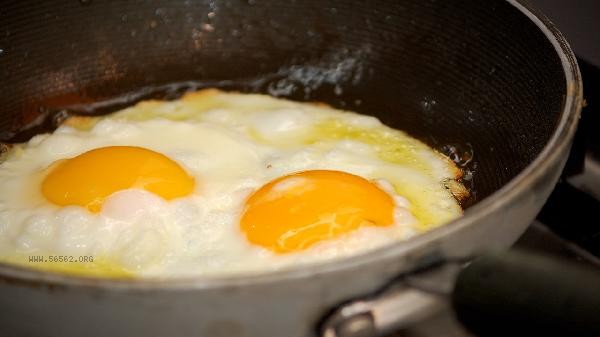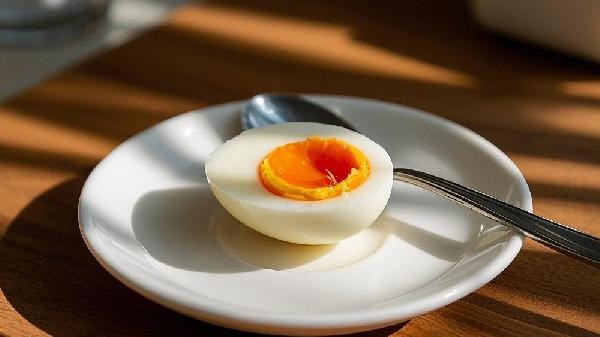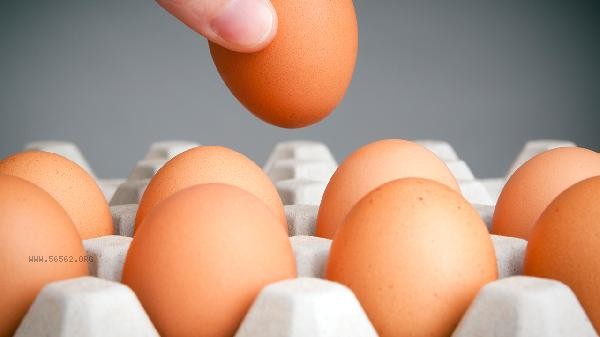The difficulty in peeling boiled eggs is usually related to factors such as the freshness of the eggs, cooking methods, and cooling methods. The main reasons are short storage time of eggs, high boiling water temperature, insufficient cooling after boiling, tight adhesion of eggshell membrane, and influence of acidity and alkalinity.

1. Short storage time of eggs
The inner membrane of fresh eggs is tightly adhered to the protein, and when the storage time is insufficient, the inner membrane of the eggshell is not fully relaxed. During the storage of eggs, carbon dioxide will gradually be released, causing an increase in the pH value of the egg white, which helps to separate the inner membrane from the protein. It is recommended to store at room temperature for a few days after purchase before cooking to reduce the difficulty of peeling.
2. Boiling eggs in a boiling state with excessively high water temperature
can cause the eggshell to vibrate violently, causing the protein to excessively squeeze the inner membrane of the eggshell. When the water temperature exceeds 100 degrees, the protein denaturation rate is too fast, forming a dense structure that wraps around the inner membrane. Suggest boiling in cold water over low heat and keeping the water temperature slightly boiling to ensure even coagulation of the protein.
3. Insufficient cooling after cooking
Sudden contact of hot eggs with cold water can cause the eggshell to contract too quickly, while the internal proteins remain swollen. Excessive temperature difference can lead to mechanical adhesion between proteins and endometrium. After cooking, it should be immediately soaked in cold water, and the eggshell and protein should be naturally separated through the principle of thermal expansion and contraction. It is recommended to soak for more than 5 minutes.

4. Tight adhesion of eggshell membrane
The eggshell membrane of some egg varieties contains a high amount of collagen, which has a strong binding force with egg white protein. Brown shelled eggs usually have a thicker inner shell than white shelled eggs, which can easily leave debris when peeled. Before cooking, a needle can be used to pierce a small hole in the blunt end of the egg to help release steam and reduce the pressure difference between inside and outside.
5. Influence of acidity and alkalinity
Adding a small amount of white vinegar or baking soda to boiled egg water can change the pH value. Vinegar can soften the calcium carbonate in the eggshell, and baking soda can enhance the alkalinity of the protein. However, excessive addition can affect the flavor of eggs. It is recommended to add no more than 5 milliliters of vinegar or 2 grams of baking soda per liter of water, and immediately rinse the surface of the eggshell with running water after cooking.

When cooking eggs in daily life, you can choose to store eggs for about a week, put them in cold water to maintain a water temperature of about 90 degrees, and control the cooking time to 8-10 minutes. After cooking, quickly cool down and gently tap the eggshell to form cracks, making it easier to peel the shell from the air chamber end. If there is difficulty in peeling the shell for a long time, it is recommended to check whether the storage conditions of the eggs are suitable to avoid the eggshell from deteriorating in a humid environment. When peeling, rinsing with running water can help separate the membrane from the protein, but care should be taken to avoid contaminating the egg white with eggshell debris.








Comments (0)
Leave a Comment
No comments yet
Be the first to share your thoughts!